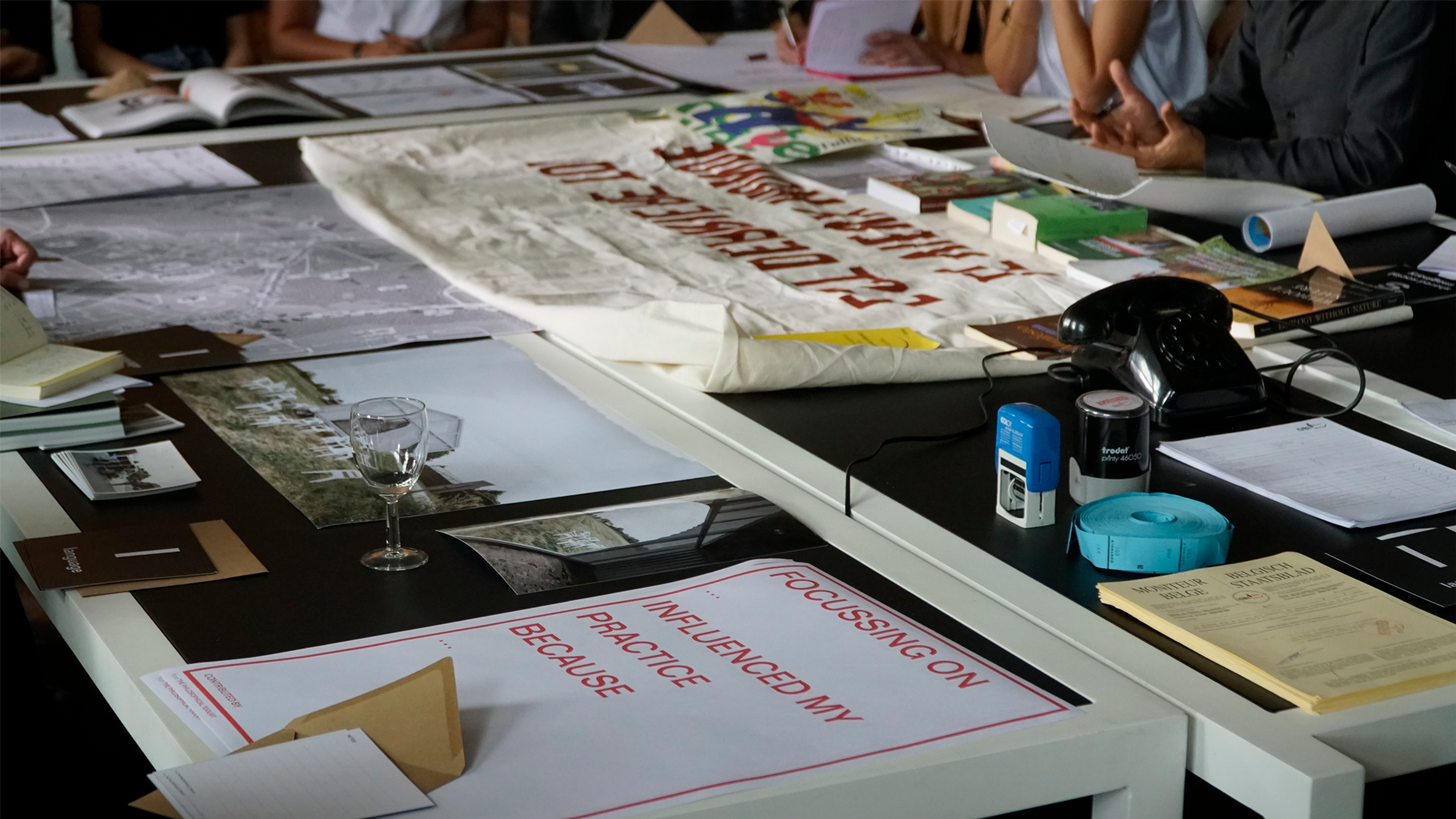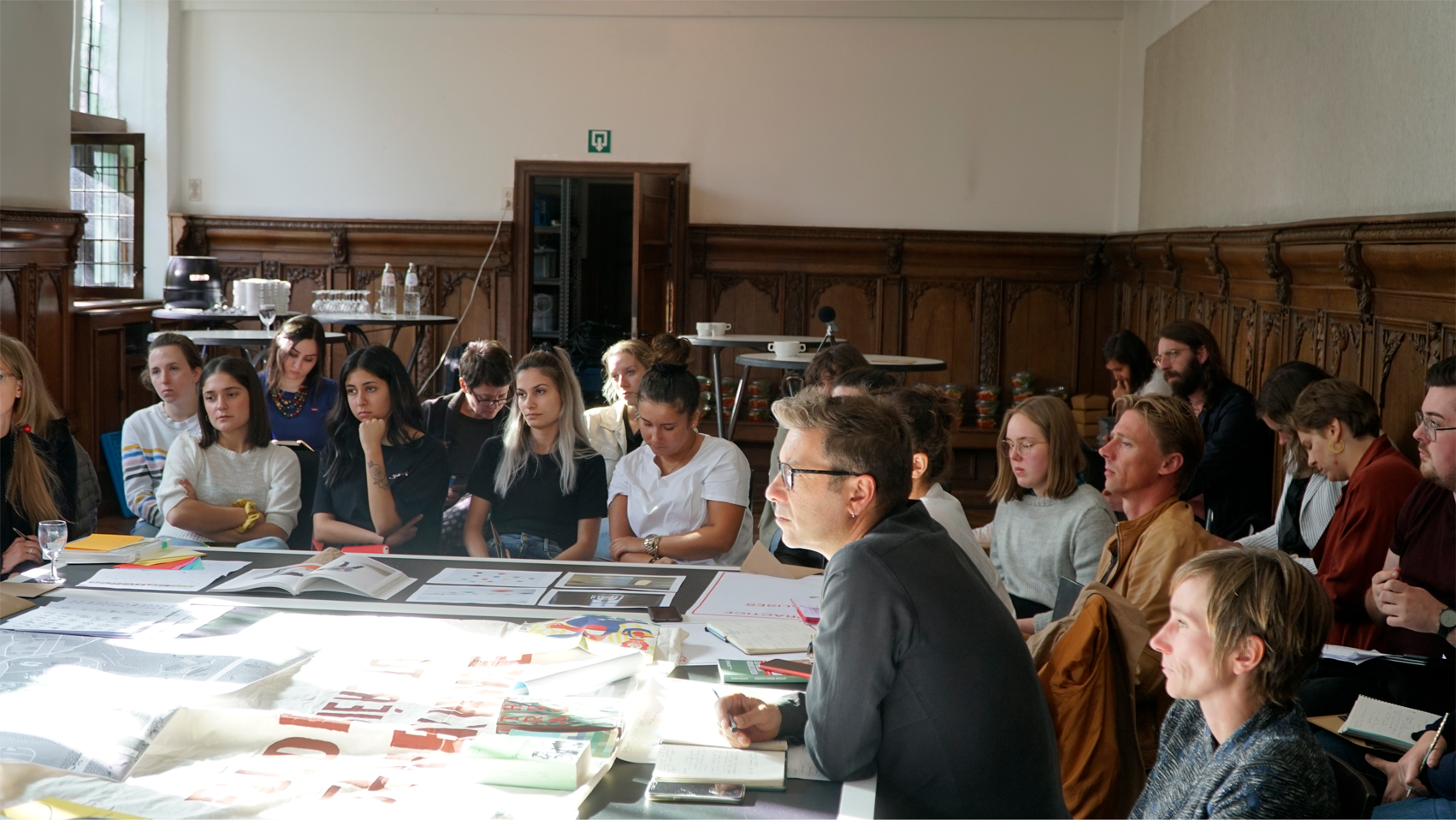Triggering Lecture - Luigi Coppola
Triggering lecture about the politics of "translation":
Today we need faith in the future based on respect for who we are or who we long to be. This demands a radical change in the narrations that question and query the current state of affairs and generate new insights into what would otherwise remain hidden. The language we use has an extraordinary potential to push towards a widening of both cultural norms and formal regulations in society.
Neoliberalism has been the dominant political and economic paradigm for the last 50 years. It has distributed wealth and power upward, influencing everything from government policies to business blueprints and global trade deals to collective agreements. Neoliberalism has also reshaped the way we think about ourselves and the world around us. Whatever else one might say about it, neoliberalism’s narrative power is undeniable. Yet today, neoliberalism is fading. As the model fails on its own terms, the intellectual dominance of the neoliberal paradigm is falling out of favor among academics, policy makers, and even the business community.
However, those advocating for a more just and equitable system of political economy do not yet have a unifying philosophical paradigm or narrative framework. Therefore we question what deep narratives are needed to create a just and equitable economic system after neoliberalism. What strategies advance those narratives? What alignment among organizations and practitioners is needed to produce narrative change on a global scale?
The commons re-appropriation movement has a particular role in the creation of those new narratives. It is increasingly present within our society as a (micro) social revolution practice that germinates on a small scale and embraces the complexity of relationships with other generative practices. Social design can play a fundamental role thanks to its innate ability to intervene at all levels in the construction of commons, on the level of the first revelation from the latent state, the activation of a shared social imaginary, the symbolic translation of processes into visual imagery and narrative, the activation of the fundamental rituals and celebrations and the transmission to the outside. In order to activate this complex role it is important to incorporate the strategy of participatory research that connects intervention with practical knowledge, social sciences, and technical disciplines, offering multiple answers which adapt to the context.
In this reflection I would like to underline a practice-led strategy I am exploring in different contexts, that consists in a series of actions that are aimed at promoting climate change adaptation and the resilience of marginal systems. As a practical example I'd like to investigate the implications of language and terminologies embedded in dominant monocultural approaches whilst seeking to counter-verbalise them. How can one challenge the existing vocabulary underlying the politics of traditional botanical taxonomies and classifications? What new signifiers can agro-political practices articulate in order to question the power exercised through dispossession and exploitation of land, communities and biodiversity?
Today we need faith in the future based on respect for who we are or who we long to be. This demands a radical change in the narrations that question and query the current state of affairs and generate new insights into what would otherwise remain hidden. The language we use has an extraordinary potential to push towards a widening of both cultural norms and formal regulations in society.
Neoliberalism has been the dominant political and economic paradigm for the last 50 years. It has distributed wealth and power upward, influencing everything from government policies to business blueprints and global trade deals to collective agreements. Neoliberalism has also reshaped the way we think about ourselves and the world around us. Whatever else one might say about it, neoliberalism’s narrative power is undeniable. Yet today, neoliberalism is fading. As the model fails on its own terms, the intellectual dominance of the neoliberal paradigm is falling out of favor among academics, policy makers, and even the business community.
However, those advocating for a more just and equitable system of political economy do not yet have a unifying philosophical paradigm or narrative framework. Therefore we question what deep narratives are needed to create a just and equitable economic system after neoliberalism. What strategies advance those narratives? What alignment among organizations and practitioners is needed to produce narrative change on a global scale?
The commons re-appropriation movement has a particular role in the creation of those new narratives. It is increasingly present within our society as a (micro) social revolution practice that germinates on a small scale and embraces the complexity of relationships with other generative practices. Social design can play a fundamental role thanks to its innate ability to intervene at all levels in the construction of commons, on the level of the first revelation from the latent state, the activation of a shared social imaginary, the symbolic translation of processes into visual imagery and narrative, the activation of the fundamental rituals and celebrations and the transmission to the outside. In order to activate this complex role it is important to incorporate the strategy of participatory research that connects intervention with practical knowledge, social sciences, and technical disciplines, offering multiple answers which adapt to the context.
In this reflection I would like to underline a practice-led strategy I am exploring in different contexts, that consists in a series of actions that are aimed at promoting climate change adaptation and the resilience of marginal systems. As a practical example I'd like to investigate the implications of language and terminologies embedded in dominant monocultural approaches whilst seeking to counter-verbalise them. How can one challenge the existing vocabulary underlying the politics of traditional botanical taxonomies and classifications? What new signifiers can agro-political practices articulate in order to question the power exercised through dispossession and exploitation of land, communities and biodiversity?


